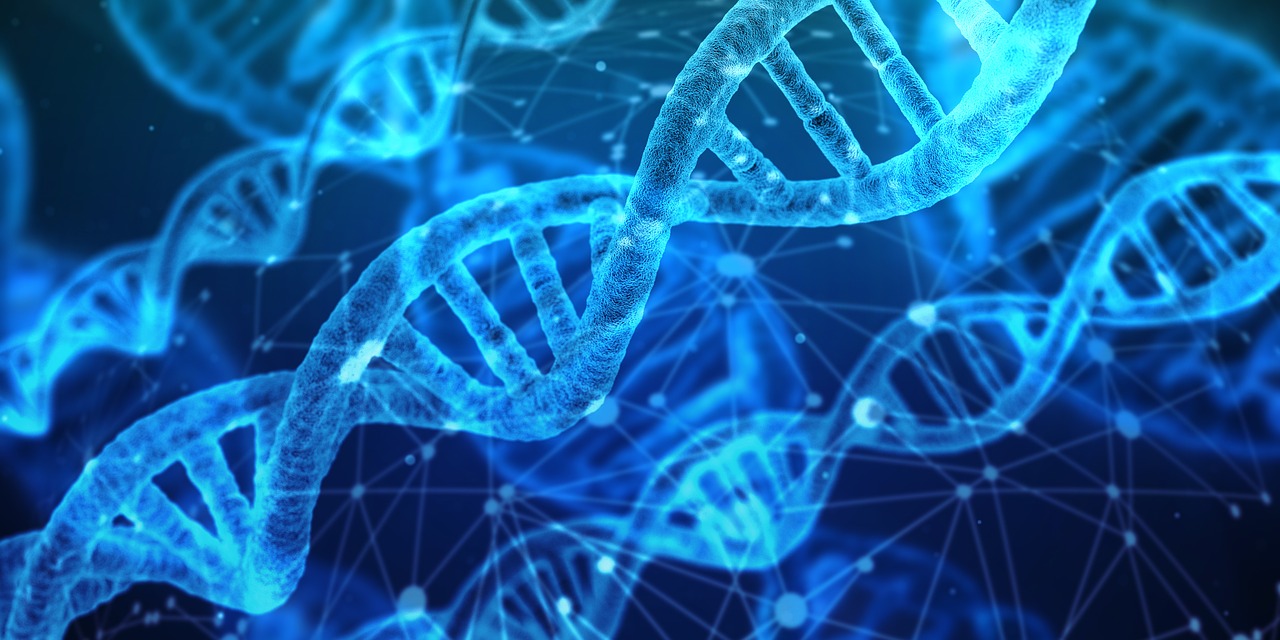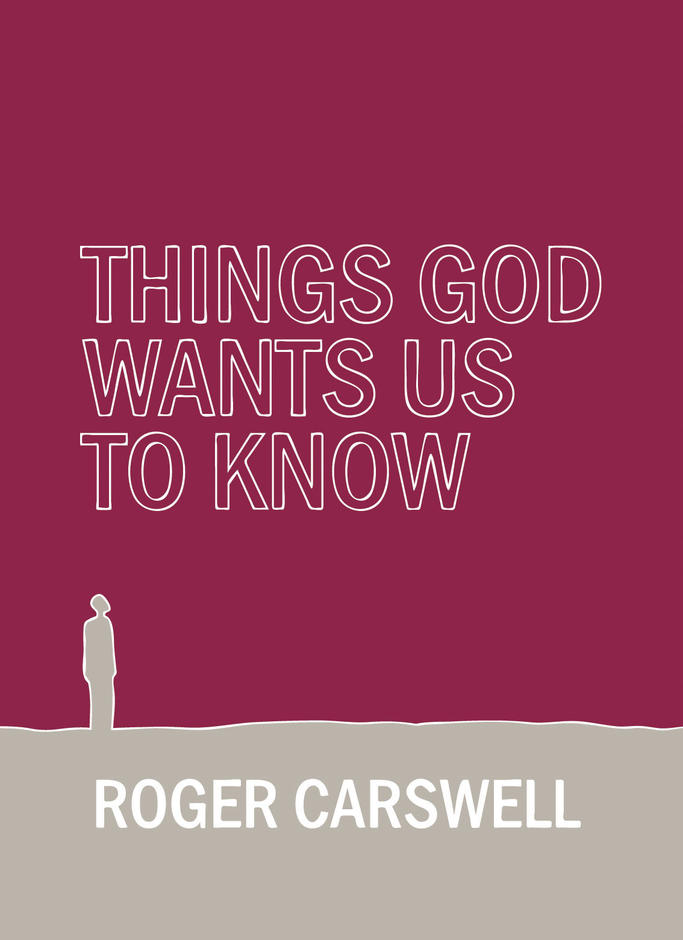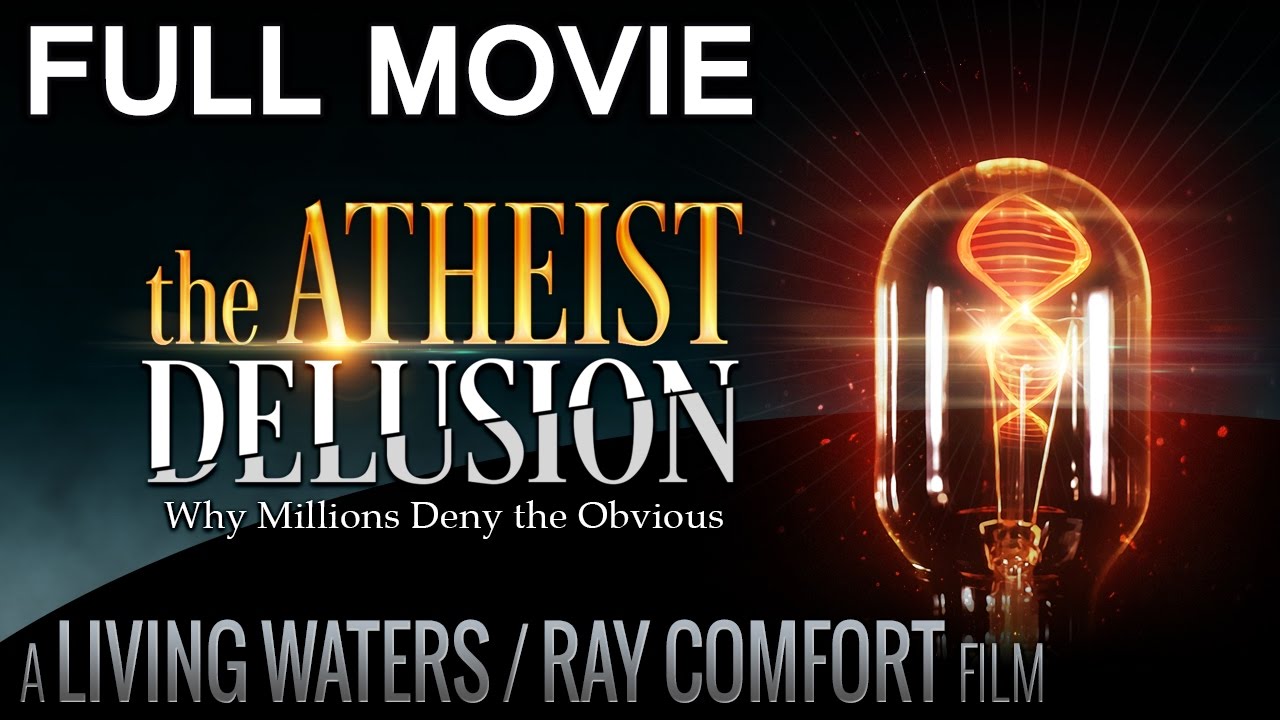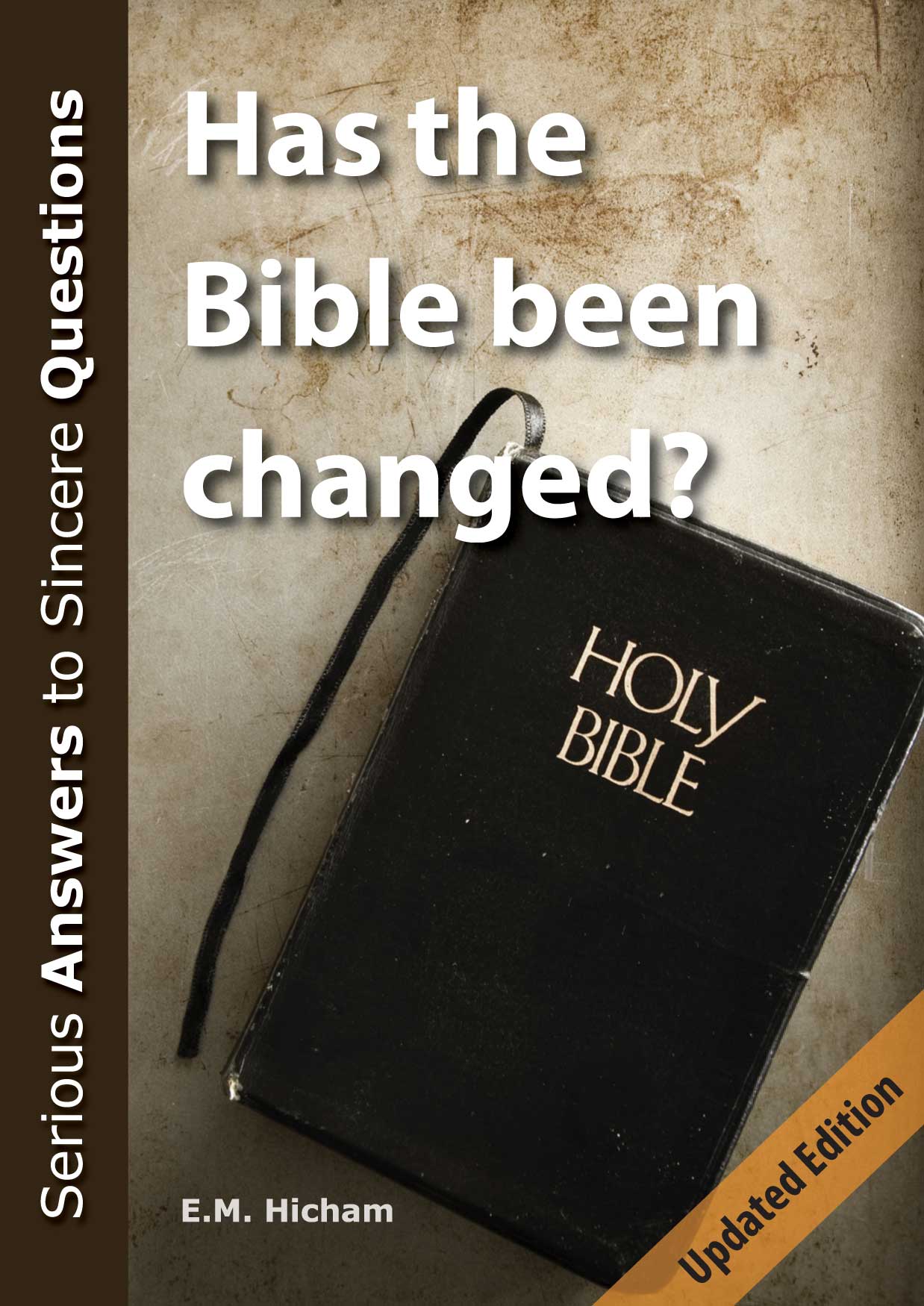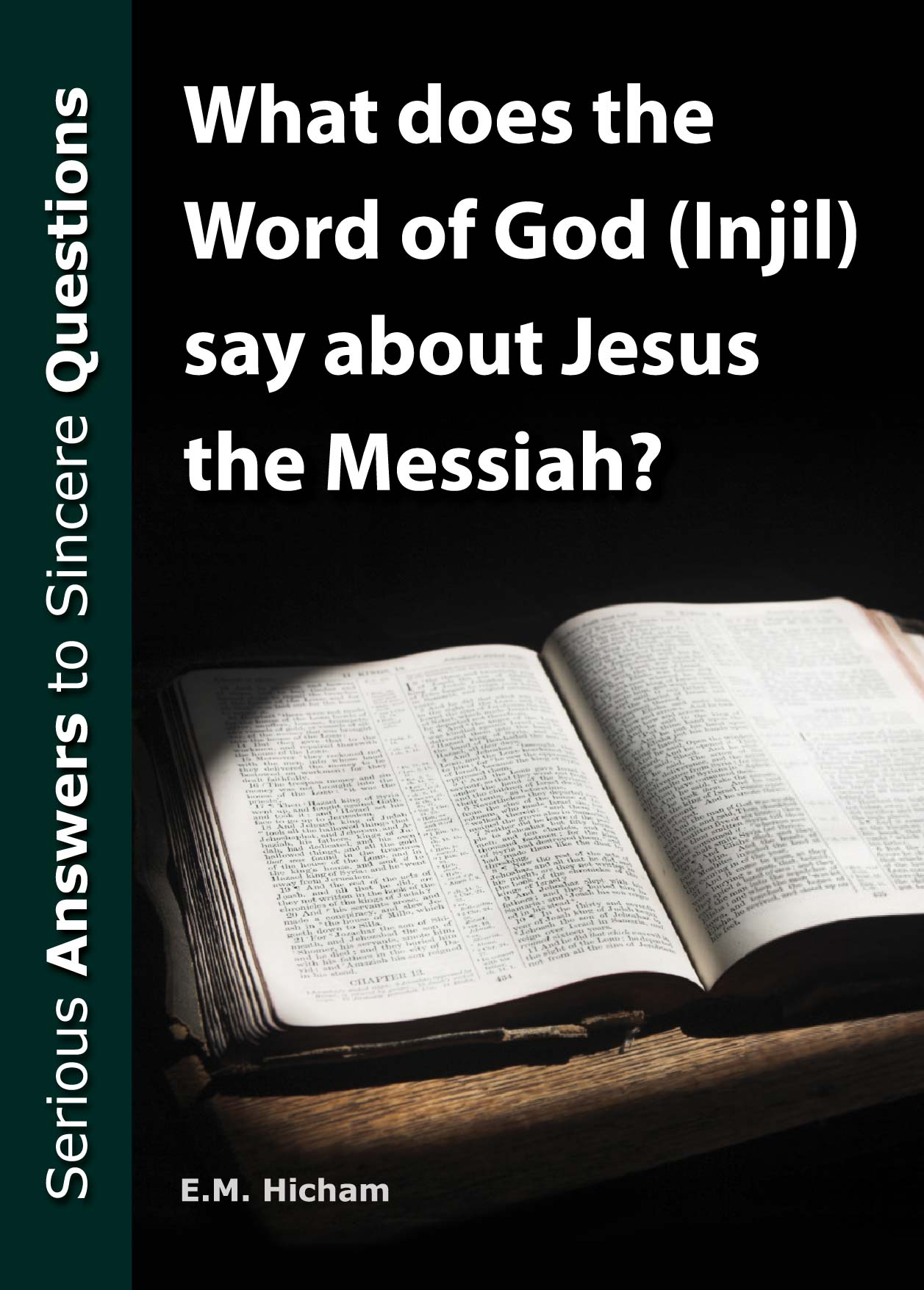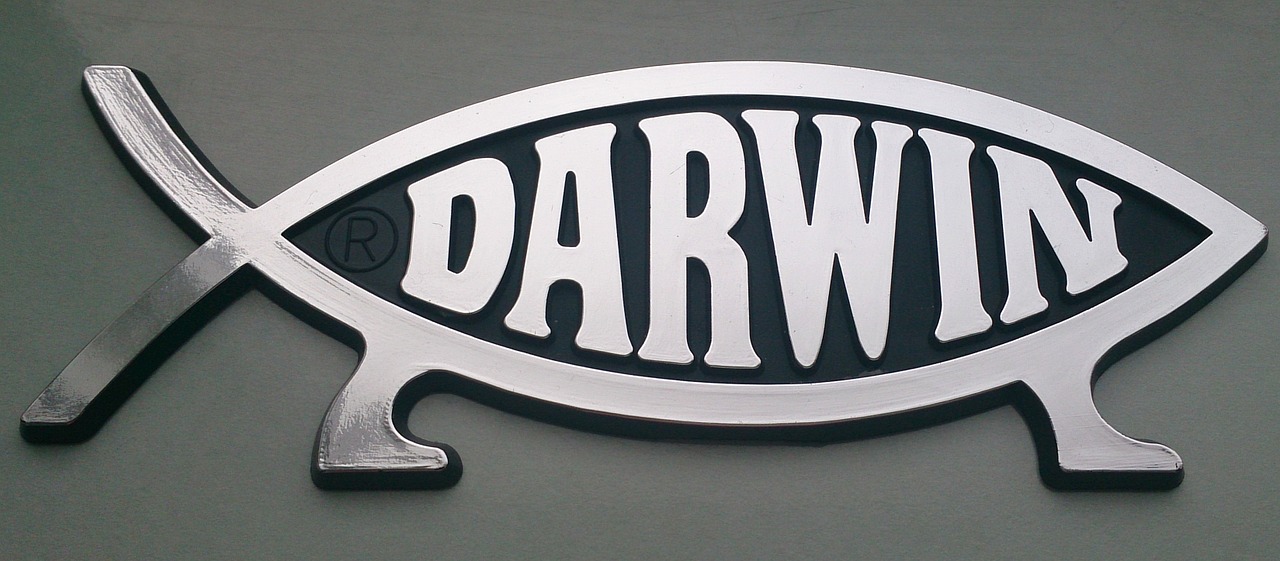Before you say, “I don’t believe.” Chapter 6
Why do think so many great scientists have been great Christians?
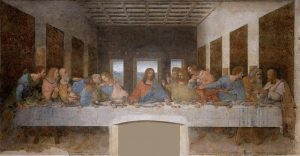 Throughout history people of science have often been Bible believers, whose faith in God has guided their scientific research. I am listing some of the more well-known ones, as recent atheistic writers have suggested that good science, intellectual prowess and Christian faith are incompatible. Whatever your views, I think we can agree that such a view is mischievous at best, and dishonest at worst:
Throughout history people of science have often been Bible believers, whose faith in God has guided their scientific research. I am listing some of the more well-known ones, as recent atheistic writers have suggested that good science, intellectual prowess and Christian faith are incompatible. Whatever your views, I think we can agree that such a view is mischievous at best, and dishonest at worst:
Leonardo da Vinci (1452 -1519) is regarded by many as the founder of modern science. Artist, engineer and experimental scientist, da Vinci believed in Jesus and the Bible. His great work of art ‘The Last Supper’, bears witness to his faith in the caring Christ.
Galileo (1564 – 1642), despite being officially censored by the Roman Catholic Church for his heliocentric teachings, believed the Bible and argued (rightly) that it supported his views.
Johann Kepler (1571 – 1630) is considered to be the founder of physical astronomy. Discovering the laws of planetary motion, establishing the discipline of celestial mechanics, Kepler, a devout Christian, said he was merely “thinking God’s thoughts after Him.”
Francis Bacon (1561 – 1626), Lord Chancellor of England, is usually considered to have formulated the scientific method of study. He wrote, ‘There are two books laid before us to study, to prevent our falling into error; first, the volume of the Scriptures, which reveal the will of God; then the volume of the creatures, which express His power.’
Blaise Pascal (1623 – 1662), mathematician and philosopher, is considered the father of the science of hydrostatics and one of the founders of hydrodynamics. To him is attributed the famous ‘Wager of Pascal’, arguing that no-one could lose who chooses to be a Christian. For when he dies, if it is not true, he has lost nothing, but probably been happier than his non-believing friends. If, however, there is a God and Heaven and hell, then he has gained Heaven and his sceptical friends will have lost everything in hell!
Robert Boyle (1627 -1691), one of the founders of the Royal Society is regarded as the father of modern chemistry. He was considered in his time to be the greatest physical scientist of his generation. He greatly loved the Lord, was a diligent student of the Bible and was deeply involved in missionary work.
Isaac Newton (1642 -1727) is famous for, among other things, his discovery of the law of universal gravitation, and the laws of motion, and the development of calculus. This great intellectual was a genuine believer in Christ as his Saviour, and in the Bible as God’s word. He wrote on Biblical subjects, including prophecy, creation and the worldwide Flood. He said, “We account the Scriptures of God to be the most sublime philosophy. I find more sure marks of authenticity in the Bible than in any profane history whatsoever.”
William Herschel (1738 – 1822), was an outstanding astronomer whose great discoveries included the recognition of double stars the discovery of Uranus, and in cataloguing the nebulae and galaxies as they had never before been done. Though noted for his kindness, he said, “The un-devout astronomer must be mad!”
 Michael Faraday (1791 – 1867) is universally acknowledged as one of the greatest physicists of all time. He discovered electromagnetic induction and introduced the concept of magnetic lines of force. He invented the generator. He also made many key contributions to the field of chemistry. He was a deeply spiritual man, saying, “The Bible, and it alone, with nothing added to it nor taken away from it by man, was the sole and sufficient guide for each individual, at all times and in all circumstances … faith in the divinity and work of Christ is the gift of God.”
Michael Faraday (1791 – 1867) is universally acknowledged as one of the greatest physicists of all time. He discovered electromagnetic induction and introduced the concept of magnetic lines of force. He invented the generator. He also made many key contributions to the field of chemistry. He was a deeply spiritual man, saying, “The Bible, and it alone, with nothing added to it nor taken away from it by man, was the sole and sufficient guide for each individual, at all times and in all circumstances … faith in the divinity and work of Christ is the gift of God.”
Humphrey Davy (1778 – 1829), was a chemist who was the first to isolate many important chemicals, and also to develop the motion theory of heat. He, of course, invented the famous Davy (safety) lamp. Like his friend Faraday, he was a Bible-believing Christian.
Samuel F.B. Morse (1791 -1872) is famous for the invention of the telegraph. The first message sent (in 1844) over the wire was taken from the Bible: ‘What God hath wrought’. Four years before he died, Morse wrote, ‘The nearer I approach to the end of my pilgrimage, the clearer is the evidence of the divine origin of the Bible, the grandeur and sublimity of God’s remedy for fallen men and women are more appreciated, and the future is illumined with hope and joy.’
Sir James Simpson (1811- 1870) was Professor of Obstetric Medicine at Edinburgh University. He is considered to be one of the chief founders of gynaecology, and was the discoverer of chloroform, helping to lay the foundation of modern anaesthesiology. When asked what his greatest discovery was, he replied, “That though I am a great sinner, I have a great Saviour!”
John Herschel (1792 – 1871), the son of Sir William, discovered over 500 new nebulae and catalogued the stars and nebulae of both the northern and southern hemispheres. He said, “All human discoveries seem to be made only for the purpose of confirming more and more strongly the truths that come from on high and are contained in the sacred writings.”
Louis Pasteur (1822 – 1895) is one of the greatest names in the history of science and medicine, and is still regarded as the greatest biologist of all time. He made the greatest contribution of any one man to the saving of human lives through his discoveries, though because of his opposition to Darwinism he was opposed throughout his lifetime by the biological establishment. He became more deeply religious as he grew older, saying, “The more I know, the more does my faith approach that of the Breton peasant. Could I but know all, I would have the faith of the Breton peasant.”
Lord Kelvin (1824 – 1907) was Professor of Natural Philosophy at the University of Glasgow. He established thermodynamics as a formal scientific discipline, formulating the first and second laws in precise terminology. He received numerous honours from the scientific community, but remained a Christian who firmly believed the Bible, arguing that people ‘could be free in their thought, in their criticisms; and with freedom of thought they were bound to come to the conclusion that science was not antagonistic to religion, but a help for religion.’
In more recent years, the tradition of scientists who have strong Christian convictions, which have led them to a personal relationship with God, include Dr. Francis Collins, the Director of the National Human Genome Research Institute in Maryland. He moved from being an atheist to a Christian, whilst seeking to prove his atheistic position when studying medicine. The fact of moral absolutes, written within the hearts of human beings, that points people to God, led to a struggle that he could no longer resist. It led him to a place where he firmly believed in God.
Sir Robert Boyd (1922 – 2004) can be regarded as the father of space science in the U.K. His obituary in the Daily Telegraph wrote of him, ‘Throughout his life he was a man of strong religious faith that was entirely rational and committed; he saw no incompatibility between the honest pursuit of scientific truth and the claims of the Christian gospel.’
Professor Verna Wright, (1928 – 1998) was a physician and Professor of Rheumatology at Leeds University. The Guardian newspaper entitled his obituary, ‘For science and Jesus’. He wrote over 1,000 scientific papers and 21 books, including ‘The relevance of Christianity in a scientific age’ and ‘Personal peace in a nuclear age’.
Professor John Wyatt is Professor of Neonatal Paediatrics and a Consultant Neonatologist at University College, London. He has specialised in issues concerning the mechanisms, consequences and prevention of brain injury in critically ill newborn infants. A convinced Christian he has consistently argued that “many modern social malaises stem ultimately from an impoverished, reductionist understanding of what it means to be a human being (created by God), which can ultimately lead to a situation where ‘the strong will exploit the weak.’”
Professor Michael Clarkson is Emeritus Professor of Veterinary Science at Liverpool University, and has been the President of the U.K. Sheep Veterinary Society. He was converted from an atheistic background after reading the Gospel of John as a student at Liverpool University
Professor Norman Nevin is Professor Emeritus of Medical Genetics at Queen’s University, Belfast, is a consultant clinical geneticist and Head of the Northern Ireland Regional Genetics Service. He has researched extensively into congenital abnormalities, particularly spina bifida, and genetic disorders. He is a Christian, an elder of his large church in Belfast, a lover of, and defender of, the Bible, and has a desire that others should come to know God in a personal way.
Professor David Back has been the Professor of Pharmacology at the University of Liverpool since 1994. He established the Research HIV Group in 1988 studying the key areas of pharmacology of anti-HIV drugs and the management of patients with HIV. He was awarded the Lilly Prize from the British Pharmacological Society for his outstanding contribution to Clinical Pharmacology in 2007. He is committed to making Christ known to those he meets in his community and beyond.
Professor John Lennox is a mathematician and philosopher of science, who is currently Professor of Mathematics at Oxford University, and who says, “There is a God who is personal, who is good, who is the source of life and meaning, who reaches out to me as a person, and who in fact, far from stopping me from doing science, encourages the development of the mind that He has given me.”
Science as we know it is a direct consequence of the Judeo-Chrisitan heritage in this world. Even Richard Dawkins said, “It has to be admitted that of course, science grew out of a religious tradition!” And there is good reason for that. Some years ago, the scientist Joseph Needham made an epic study of technological developments in China. He was trying to understand how this great nation, noted for its innovation, had fallen behind Europe in the advancement of science. Reluctantly, he concluded that European science had been spurred on by the widespread belief in God
The idea that science can explain everything is totally false; science is limited, and that is no insult to science. The Nobel prize winner Peter Medawa said, “Science cannot deal with the simple questions of a child, ‘Why am I here?’ ‘What is the meaning of my life?’ It cannot deal with culture, with art, with poetry, with history.’
Seeing 3.5 billion letters of the genetic alphabet in exactly the right order in the human genome does not lead one to conclude that this is mere chance or accident. There is order, design, complexity, fine-tuning, beauty, predictability, cause and effect in our world and universe. Order does not come out of chaos. Rather there is powerful evidence that there is a supernatural power behind all of this.
Frank Tipler, Professor of Mathematical Physics at Tulane University wrote, ‘When I began my career as a cosmologist some twenty years ago, I was a convinced atheist. I never in my wildest dreams imagined that one day I would be writing a book purporting to show that the central claims of Judeo-Christian theology are in fact true, that these claims are straightforward deductions from the laws of physics as we now understand them. I have been forced into these conclusions by the inexorable logic of my own special branch of physics…From the perspective of the latest physical theories, Christianity is not a mere religion, but an experimentally testable science.’ Needless to say, he has been maligned by the atheists, but the argument that behind design is a Designer, and behind things made is a Maker, needs an answer, not just abuse!
Grill a Christian by Roger Carswell - request your free copy!
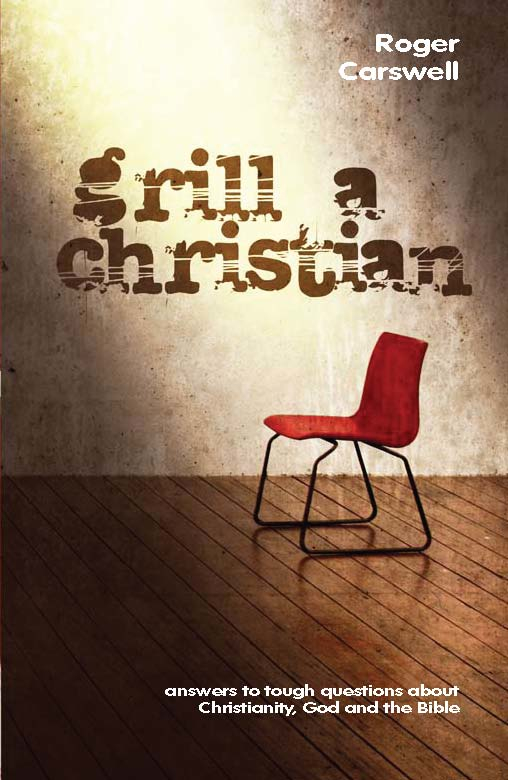
Wouldn't you just love to grab a Christian, sit them down in the hot seat and grill them mercilessly on the tough questions about God, the Bible and the world? If you have ever wished you could have your question about God answered, then this book is for you!
request now





